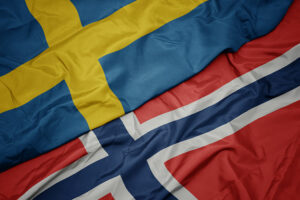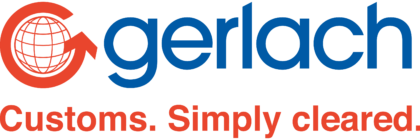Selling to Norway or selling in Norway?
The first most important question to ask is whether it is a sale to Norway or in Norway.
Sale to Norway (export sale)
A sale to Norway is considered an export sale and does not trigger any special obligations for the foreign seller, except a customs declaration for export. In this case, the importer is responsible for clearing the goods through customs and paying VAT on the value of the goods. This does not trigger any obligations to register and pay VAT or taxes.
It can also be simple: the customs experts at Gerlach Customs offer customized solutions for e-commerce business requirements through their location in Sweden. For example, they work with Swedish online fashion companies (B2C) and help them with customs formalities when exporting from Sweden and importing to Norway. Gerlach is also able to support companies with efficient returns logistics processes and the new possibilities of the so-called “reverse” Clearance Package.
Contracts with elements of assembly or installation
However, foreign companies should be aware that contracts containing elements of assembly or installation may also have an impact on the VAT treatment of the goods. A typical example would be a supply of goods to Norway where the customer is the registered importer but the seller physically assembles or installs the products on site. In this case, both the assembly/installation services and the goods are subject to VAT as a domestic transaction in Norway.
The goods and services are considered as sales in Norway. For foreign companies, this triggers both registration and reporting obligations in Norway. Also, for contracts that include elements such as maintenance and upgrades as a consequential obligation, these services are also subject to VAT in Norway.
An important exception is services that can be delivered remotely. These may be ancillary services such as installation and software test runs in connection with the delivery of the goods. If these services can be supplied remotely, e.g. from the seller’s offices outside Norway, the seller is not required to register for VAT.
Sale in Norway (domestic supply)
A sale in Norway triggers an obligation to register for VAT if the turnover exceeds NOK 50,000 in a 12-month period.
A sale is usually considered to take place in Norway if the goods are delivered to the buyer’s location. The person who is indicated as the consignee when goods are imported is the debtor. This applies regardless of who actually possesses or will receive the goods. The information on invoices and other receipts has no independent legal significance.
In order not to suffer any economic disadvantages, companies should always get a strong and competent partner on board who is aware of possible pitfalls and can prevent their customers from falling into them. Gerlach Customs provides its clients with full support so that they can concentrate on their core business.
READ FURTHER HERE AS WELL:
Enter the Norwegian market easily with Gerlach Customs
Calculating the customs value
Selling in Norway means that you, as the importer, are also responsible for calculating the customs value.
The customs value is the amount paid or payable for goods abroad, including the cost of transporting them to Norway, insurance, packaging costs and the like.
Royalties and agent commissions are added to the customs value. If you have contributed to the production of the goods abroad, the costs of this must also be added.
The customs value is normally calculated in this way:
Price of the goods
+ insurance (if applicable)
+ costs for packaging and the like
+ fees, royalties and commissions (if applicable)
+ shipping costs
———————–
= customs value
How Gerlach Customs can support you
As you have learned in this article, there are a number of challenges that companies doing business with Norway may encounter. To find the safest and most efficient solution for your company, you should contact Gerlach Sweden. Gerlach’s location in Sweden offers customers throughout Europe the exclusive Clearance Package for Norway: Gerlach Sweden is the all-in-one solution for Swedish export declaration and Norwegian import clearance. The special feature: We offer this service in both directions. Norwegian companies wishing to enter the Swedish or European market can also rely on Gerlach Customs as a single point of contact for all their customs clearance processes and trade routes.
Click here to get more information about the Clearance Package Norway!


